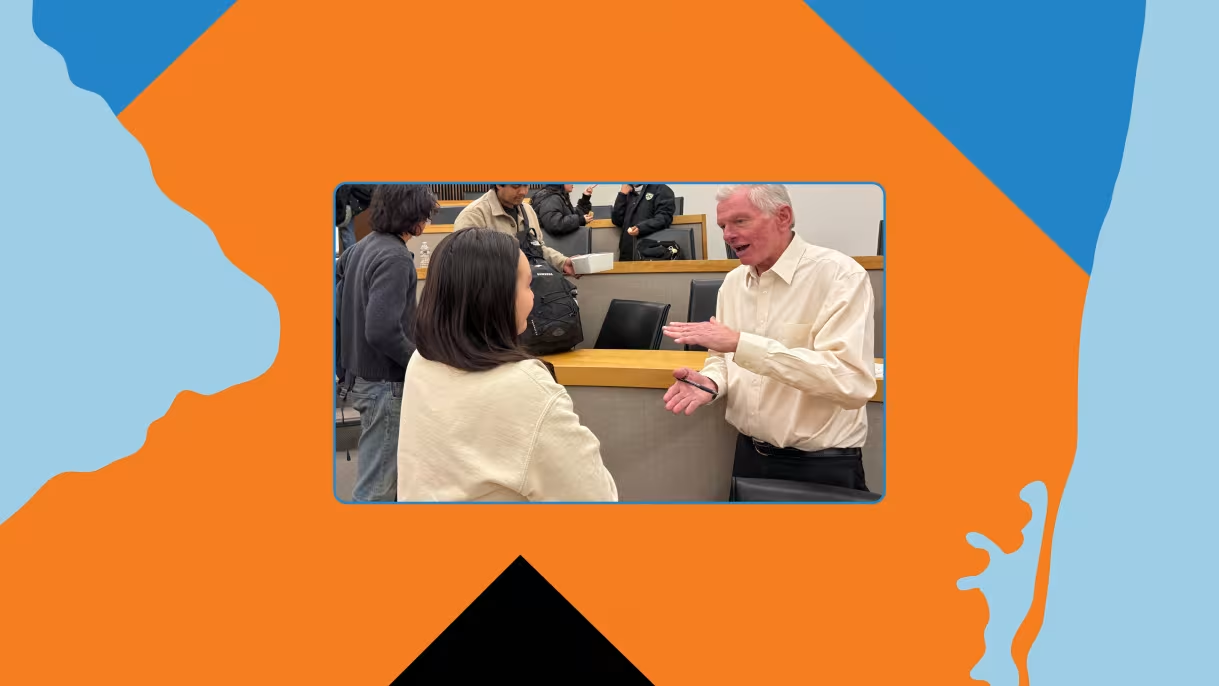

SPIA in New Jersey Lends a Hand to New Jersey Clemency Initiative
Before New Jersey Governor Phil Murphy signed an executive order last June to increase petitions for clemency and expedite the clemency process, his staff reached out to Princeton School of Public and International Affairs faculty member Heather Howard, special advisor to the School’s SPIA in New Jersey initiative.
“Essentially, they were developing the clemency initiative and knew they’d have staffing constraints given the scope of it,” said Howard, a professor of the practice at Princeton SPIA. “They thought it might be a good internship opportunity for Princeton students and potential partnership for SPIA in New Jersey.”
The timing could not have been much better. Within a few months, Joe Krakora, the former Public Defender of New Jersey, would join SPIA in New Jersey as its faculty fellow. Under his direction, the School partnered with the American Civil Liberties Union of New Jersey and the New Jersey Office of the Public Defender on the Clemency Project. More than 50 Princeton students have spent the academic year volunteering to help build the strongest possible arguments for those incarcerated people who meet the clemency criteria outlined in Murphy’s executive order.
“The student response has been overwhelming,” Krakora said. “Their commitment to the project has been very impressive.”
After receiving initial referrals of 26 clemency candidates from ACLU-NJ and the public defender’s office, Krakora divided the students into pairs and assigned a clemency candidate to each. After meeting with their clients via videoconference and reviewing pertinent documents, the sentences imposed, and the clients’ rehabilitative histories, the students drafted three-to-five-page narratives in support of the petition. Krakora reviewed and edited the narratives and compiled the final applications and documentation for filing.
To date, he has filed 25 petitions with the Governor’s Office, with another five pending. Krakora has also recently accepted four more cases for students interested in taking on a second client.
“They are all viable candidates who fall within the priority categories in the governor's executive order,” he said. “In fact, they have served decades in prison due to excessive sentences and have proven records of rehabilitation.”
Murphy's Executive Clemency staff attorneys recently came to campus to meet with the student volunteers. They discussed how the process works and how their clients’ applications will be evaluated.
“Some of the students have expressed an interest in taking on a second case before the project is over,” Krakora said. “I never would have imagined the kind of response we have had to this important work, but I think it speaks to the students' commitment to making a difference in the lives of real people.”
For MPA student Keiana West, volunteering for the project has been an extension of her prior work for a nonprofit focused on criminal legal reform and limiting the harmful impacts of policing and incarceration.
“As a graduate student at Princeton, especially in a Master in Public Affairs program, I believe we have a responsibility to utilize our skills and resources in service of the community surrounding us,” West said. “Applying theory and academic work to practical issues has always been important to me. Speaking with my client has provided me with the opportunity to be reminded of the human impact of the criminal legal reform policies I study. It has reinforced the importance of creating strong collaborations to materially improve the lives of people.”
“To my mind, the best part has been seeing the students dive in,” said Anastasia Mann, SPIA in New Jersey’s founding director. “With Joe’s guidance and support, dynamic duos — some MPA students paired with undergrads — have dedicated themselves to bring about real-world outcomes. This is service learning at its most significant.”
One of those undergraduates, first-year student Tyler Douglas, called herself a believer in second chances and justice and welcomed the opportunity to assist people who have been unfairly treated by the criminal justice system.
“My involvement in the project has strengthened my passion for social justice,” Douglas said. “I have learned the importance of listening to, understanding, and communicating with individuals who want to be heard.”
In addition to heading the Clemency Project and serving as a SPIA in New Jersey faculty fellow, Krakora, a 1976 graduate of Princeton, meets with students to advise them about careers in public-interest law. The conversations are in keeping with the School’s efforts to expose students to the wide variety of career paths that are open to them.
SPIA in New Jersey Faculty Fellow Joe Krakora (right) speaks with a student volunteer with the Clemency Project. Photo credit: Anastasia Mann

